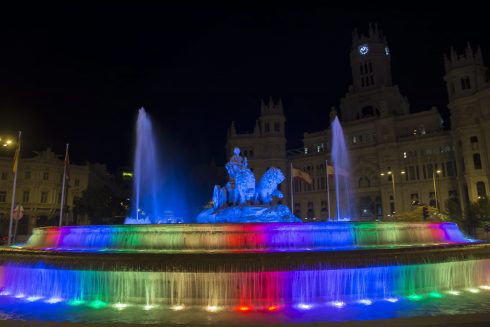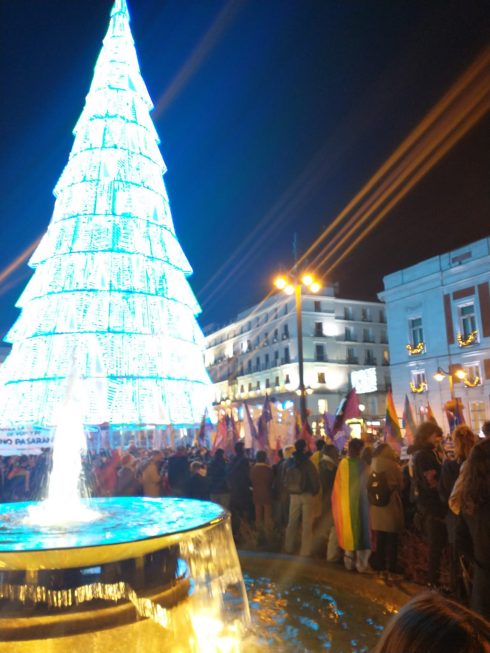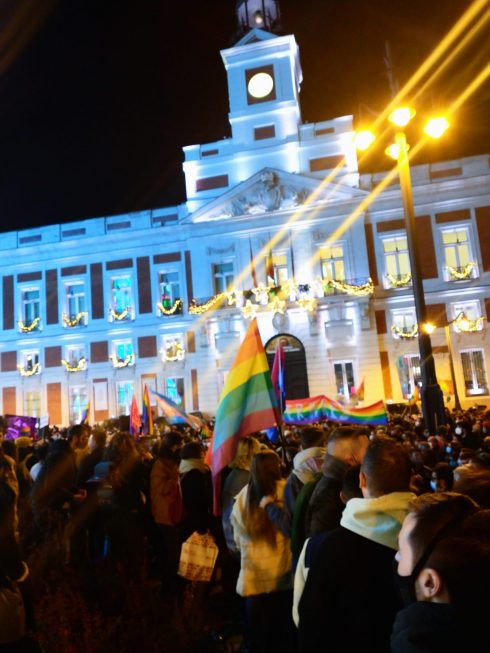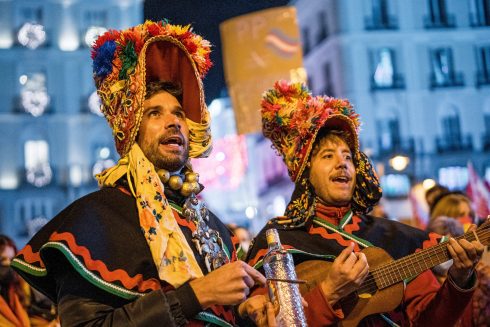DESPITE the easy insult of “maricon” or “poofter” tossed around the Spanish school yard, Spain is known as a global beacon of tolerance and pride when it comes to LGBTQ+ rights.
Madrid, Barcelona and Ibiza all feature as top tourist destinations for the international LGBTQ+ community and Madrid hosts one of the world’s biggest and wildest Pride weeks.
“It’s probably because we legalized same sex marriage and adoption rights in 2005,” Carmen García de Merlo, the first transgender president of Madrid’s collective of lesbians, gays, transexuals y bisexuals (COGAM) tells the Olive Press.
Spain became the third country in the world to make the move, after the Netherlands and Belgium, with the UK only getting to grips with the issue in 2014 and Germany in 2017.
“We have the fame,” she adds, “but when it comes down to it, the substance is lacking. And now there’s a huge number of people against LGBTQ+ rights, particularly in the case of transsexuals. Why? I don’t know. Maybe it’s the fear of the unknown, but, at the end of the day, we are just people like everyone else.”

Twelve percent of Spaniards identify as other than heterosexual, according to the market research multinational, Ipsos, making it the country with the highest population of non-heterosexual citizens in Europe and the third highest in the world.
In the case of the country’s 50,000 transsexuals, there are endless micro-offenses to deal with on a daily basis that they can do nothing about, according to Carmen.
To add insult to injury, the entire collective found itself under attack from the far right in the Madrid region in mid-December when Vox introduced a draft of its equality law in an unsuccessful bid to sweep aside the region’s existing progressive legislation on LGBTQ+ rights.
-

Hundreds came out to protest the proposal by Vox. Photo by Molly McGovern -

Hundreds came out to protest the proposal by Vox. Photo by Molly McGovern
According to Vox, the equality of the country’s citizens in the eyes of the law is being compromised by the creation of an elite that is afforded special privileges.
“Vox wants to pretend we are all equal,” says Carmen. “But obviously that is not the case. There are people who are subjected to a shed load of discrimination and those who suffer none.”
According to COGAM, Vox is simply a 21st century version of the Franco dictatorship. “Their view is you can do what you like in your own home, but don’t come out in public and pervert our children by walking down the street holding hands. That’s the gist of it,” says Carmen.
While Spain may be considered a trailblazer in certain aspects of LGBTQ+ rights, the COGAM president believes there is a long way to go before members of the collective enjoy the same inclusion as everyone else.
“There is still no law on a national scale,” says Carmen. “The draft bill that was passed in the summer promises one, but it is not moving forward because even some in the socialist party are against it.”
Until such time as a final version of this law gets through parliament, each region will continue to be free to legislate as it sees fit, with Castilla-Leon, Castilla-La Mancha, La Rioja and Asturias still having no laws to protect the collective’s rights at all. “This leaves members of the community very vulnerable with no legal support,” Carmen points out.

Meanwhile, regions like Madrid have passed laws that are liberal in theory but often fail to be observed, particularly in areas such as bullying, educating on diversity and recognition of discrimination – 80% of trans women find themselves overlooked when it comes to getting a job.
This is something which happens disproportionately to trans women, particularly those not operated on. “Trans men are more easily accepted, probably because they often look more like men,” says Carmen.
Catalunya and Andalucia are flagged up by the COGAM president as regions that have made the most progress in terms of inclusion, though often, she says, the gains have to be played down in order to avoid any backlash from the far right.
“We have to fight,” says Carmen. “The younger generation don’t understand that the rights we have now have not always been there and that if we don’t put up a fight, they’ll be taken from us.”
READ MORE:
